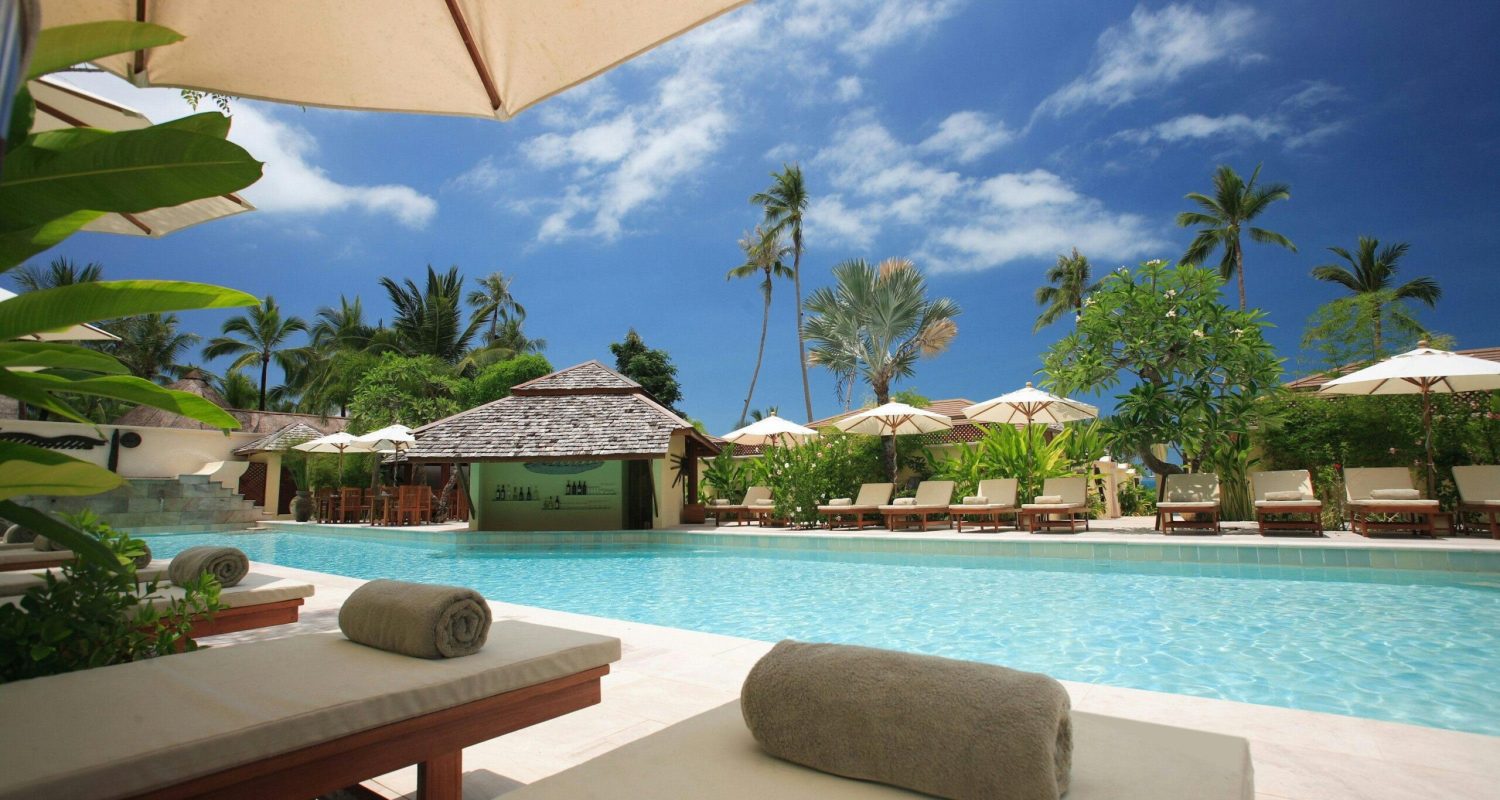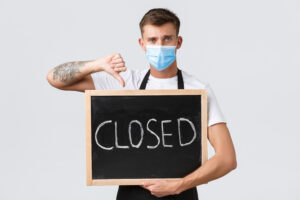Running a resort restaurant in Florida comes with both incredible opportunities and serious responsibilities. The sunny climate, oceanfront views, and constant flow of tourists make resorts one of the strongest and most profitable segments of the state’s hospitality industry. Guests expect memorable dining experiences to match their vacation setting, and that puts resort restaurants in the spotlight as key drivers of both guest satisfaction and revenue.
But along with those opportunities come unique challenges, and risks that extend far beyond what an average café or casual eatery might face. Resort restaurants operate with larger staff, longer hours, and often multiple service styles, from poolside bars to fine dining. Seasonal hiring surges, unpredictable weather events like hurricanes, liquor liability, property damage, and workplace accidents all pose serious financial threats. Without the right insurance plan in place, even a single unexpected claim can create long-lasting setbacks for your business.
That’s where specialized coverage becomes essential. For example, restaurant workers compensation insurance in Florida is not just a legal requirement, it’s one of the most critical tools for protecting your employees and your business. With a constantly changing workforce that includes seasonal and part-time staff, resort restaurants need flexible coverage that can adapt to fluctuating payroll and varying risk exposures. Workers compensation ensures that if an employee gets injured while on the job, whether slipping in the kitchen, lifting heavy supplies, or working long shifts in high-pressure environments, medical bills and lost wages are covered, protecting both the worker and the employer from devastating costs.
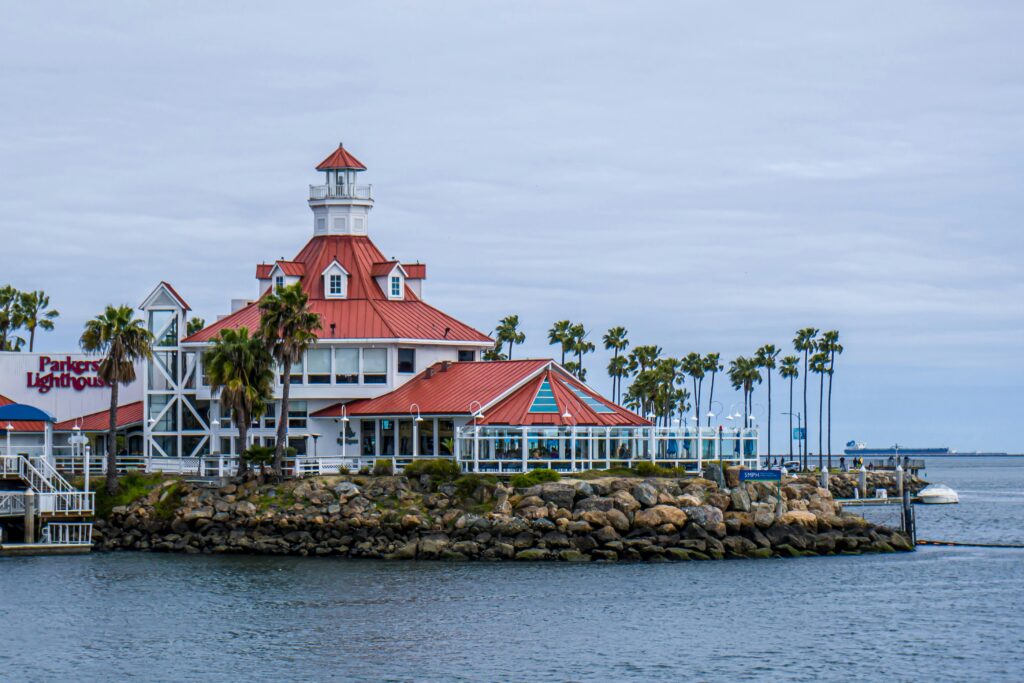
Why Resort Restaurants Require Specialized Insurance
Not all restaurants are created equal when it comes to risk. A local diner or fast-food chain may primarily worry about slip-and-fall claims or occasional property damage, but a resort restaurant in Florida operates in a far more demanding and complex environment. From the scale of operations to the diversity of events hosted, the exposures are wider, and the stakes much higher. Some of the most significant risks include:
- High turnover and seasonal employees
Resort restaurants often depend on seasonal staff to handle peak tourist months. These employees may be less experienced or less familiar with safety protocols, which can increase the likelihood of workplace accidents. This makes restaurant workers compensation insurance in Florida absolutely critical, ensuring your team is protected and your business is shielded from the financial impact of workplace injuries. - Tourist-heavy customer base
A steady flow of vacationers means more foot traffic, higher service volumes, and increased liability exposure. Tourists may be unfamiliar with the property layout, raising the chances of slips, trips, or falls. More guests also mean a greater probability of claims related to food safety, alcohol service, or other customer injuries. - Special events and large gatherings
Resort restaurants frequently host weddings, banquets, conferences, and private parties. While these events are profitable, they introduce new layers of risk, including liquor liability, property damage from rented equipment, and heightened exposure due to large groups of guests. - Geographic and environmental risks
Florida’s location adds another layer of complexity. Hurricanes, tropical storms, flooding, and even prolonged utility interruptions can disrupt operations and damage property. Without specialized coverage, a natural disaster can lead to devastating financial losses that may take years to recover from.
Because of these factors, insurance for resort restaurants must go far beyond the basics. A one-size-fits-all policy often leaves dangerous coverage gaps that could expose you to thousands, or even millions, of dollars in claims. Tailored solutions, including restaurant workers compensation insurance in Florida, liquor liability coverage, and property protection, are the only way to ensure your resort restaurant can operate confidently, no matter what challenges come your way.
The Seasonal Staffing Challenge
One of the biggest variables in resort restaurant management is staffing. In Florida, the busy season often runs from late fall through early spring, when snowbirds, cruise passengers, and vacationers pour into coastal areas. To meet this surge in demand, resort restaurants frequently rely on large numbers of temporary or part-time employees. While this flexible staffing model helps control payroll during slower summer months, it also creates unique insurance and compliance challenges that many owners underestimate.
- Workers’ compensation premiums tied to payroll size
In Florida, workers’ compensation premiums are calculated based on payroll. When a resort restaurant brings on a large temporary staff for just a few months, costs can spike unexpectedly. Without proper planning, you may end up overpaying for coverage during your peak season or worse, under-insuring your workforce. This is why aligning your policy with the realities of restaurant workers compensation insurance in Florida is so important. - Training gaps that increase accident risk
Seasonal employees often have limited onboarding and training time. This lack of familiarity with safety protocols, equipment, or kitchen procedures raises the likelihood of workplace injuries. In a high-paced environment like a resort restaurant, even minor oversights can result in costly workers’ compensation claims. - Greater exposure to employment-related claims
Short-term and part-time staff can also increase the risk of employment practices liability issues. Claims related to wrongful termination, wage disputes, or discrimination can escalate quickly—especially when turnover is high and documentation is incomplete. - Compliance challenges with high turnover
Resort restaurants must carefully manage documentation, insurance coverage, and labor law compliance for a constantly changing staff. Overlooking even one seasonal employee can leave you exposed to penalties, fines, or uncovered claims.
This is where partnering with a specialized insurance agency makes all the difference. At Commercialize Insurance Services (CIS), we help restaurant owners anticipate seasonal staffing shifts, adjust their coverage in real time, and avoid paying for protection they don’t need during off-peak months. Our expertise ensures that your restaurant workers compensation insurance in Florida is right-sized to your staffing model, so your team is protected, and your costs stay under control.
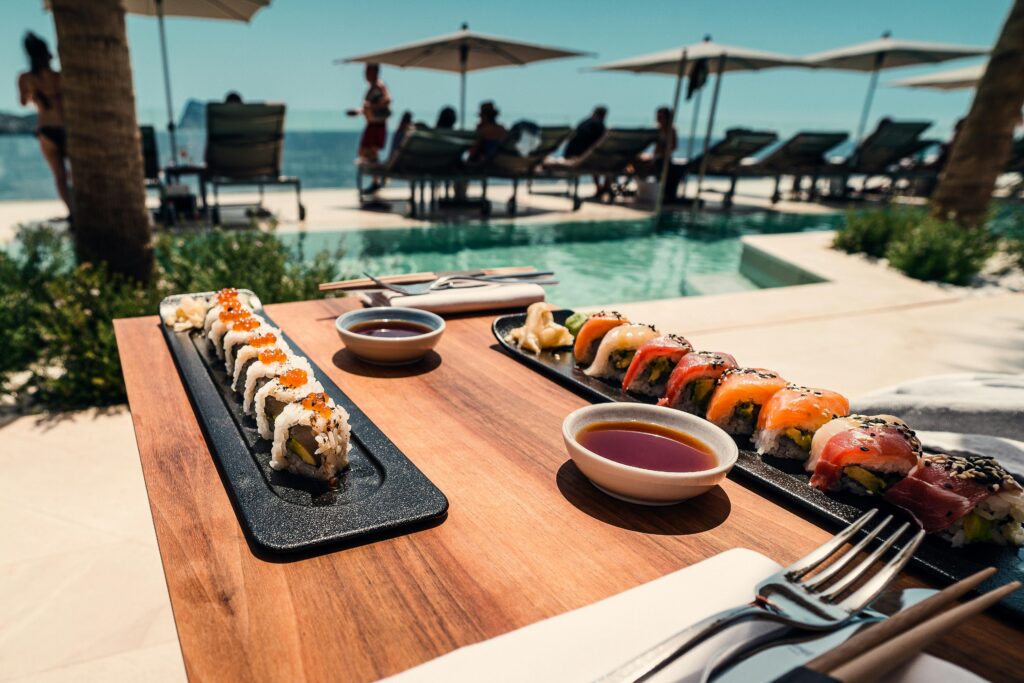
Workers’ Compensation for Seasonal Restaurant Staff
Workers’ compensation insurance is one of the most essential coverages for any restaurant, but for resort operations in Florida, it becomes even more critical. By law, any business with four or more employees must carry workers’ compensation insurance. For restaurants, where employees are constantly on their feet, working with sharp tools, hot equipment, and heavy loads, this protection is non-negotiable.
The challenge, however, comes when your workforce grows and shrinks with the seasons. Resort restaurants often double or triple their staff during peak tourist months, only to scale back once the season ends. This staffing fluctuation directly impacts your premiums, since workers’ compensation costs are calculated based on payroll.
- If you overestimate payroll, you’ll end up overpaying premiums.
- If you underestimate payroll, you could be hit with an expensive audit adjustment at the end of the policy year.
To avoid these costly surprises, we recommend exploring pay-as-you-go restaurant workers compensation insurance in Florida. This modern approach links your premiums directly to your actual payroll each month, creating a system that automatically adjusts as your staffing changes. Instead of managing large swings or facing a big audit bill, you only pay for what you need, when you need it. For resort restaurants with seasonal staff, this flexibility is a game-changer.
Beyond structuring your policy correctly, proactive safety management plays a key role in controlling workers’ compensation costs. Seasonal employees, in particular, often lack the training and experience of year-round staff. At Commercialize Insurance Services (CIS), we help our clients design practical, easy-to-implement safety training programs for new hires. By reducing the number of workplace injuries, restaurants can lower their claims frequency, ultimately driving down long-term premiums while keeping employees safe.
The right strategy combines tailored coverage with strong risk management. When approached this way, restaurant workers compensation insurance Florida doesn’t just meet a legal requirement—it becomes a tool for stabilizing costs, protecting employees, and ensuring your resort restaurant runs smoothly year-round.
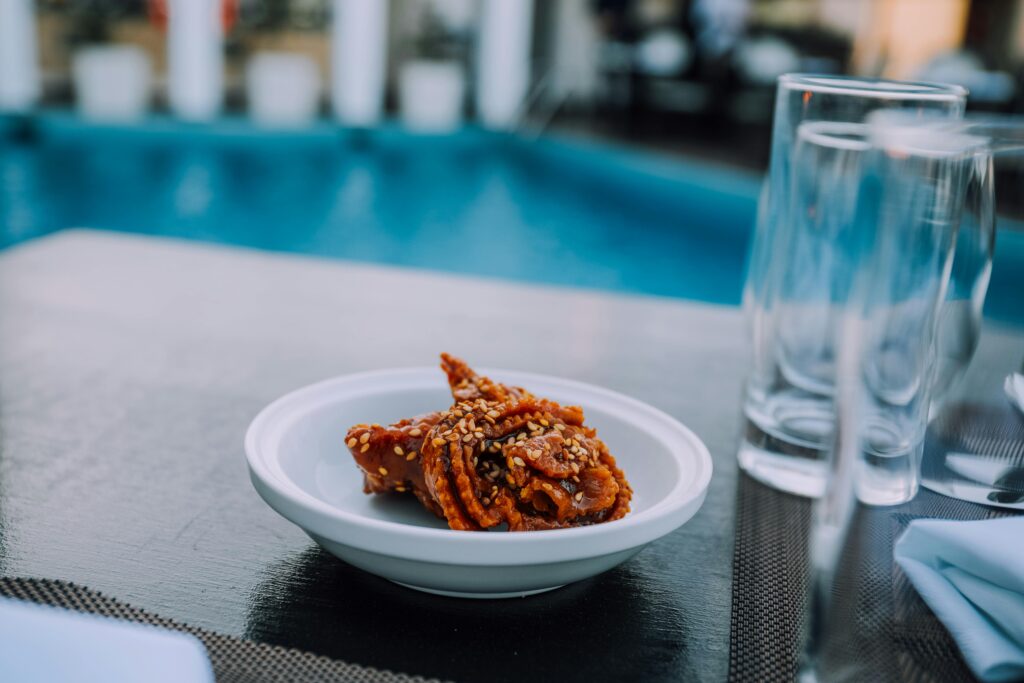
General Liability: Protecting Against Guest Claims
In the hospitality industry, reputation is everything, and nowhere is this truer than at resort restaurants. Guests choose high-end resorts for exceptional service, comfort, and safety. But even with the most well-trained staff and carefully maintained property, accidents and unexpected incidents are inevitable. A few common scenarios include:
- A guest slips near the poolside dining area and suffers a serious injury.
- A server accidentally spills hot coffee on a customer, causing burns.
- A tourist claims food poisoning after a meal and decides to take legal action.
Each of these incidents has the potential to escalate into a lawsuit. Without proper protection, the legal defense costs, medical bills, and possible settlements can be devastating for your business.
That’s where general liability insurance comes in, it serves as your first line of defense. This coverage helps pay for attorney fees, court costs, medical expenses, and settlements when a guest or third party files a claim. For resort restaurants, however, liability risks are often higher than average because:
- The guest profile is elevated. Visitors at high-end resorts typically expect more, and when something goes wrong, they are more likely to pursue significant damages.
- The environment is more complex. Poolside dining, banquet halls, bars, and outdoor events all add layers of exposure.
- Foot traffic is heavier. A steady flow of tourists means more opportunities for accidents and claims.
For these reasons, general liability limits for resort restaurants should generally be set higher than those of a standard café or casual dining establishment. By tailoring liability coverage to match your operational realities, you protect not just your finances, but also the reputation your resort has worked so hard to build.
Liquor Liability for Resort Venues
For most resort restaurants in Florida, alcohol sales are not just an added service, they are a significant revenue stream. From poolside cocktails to fine-dining wine pairings and full-service banquet bars, alcohol plays a central role in the guest experience. But with that opportunity comes substantial risk. Even a single alcohol-related incident can result in costly claims that threaten both your finances and your reputation. Consider just a few common scenarios:
- An intoxicated guest causes a car accident after leaving your restaurant, and the victim sues your establishment for overserving.
- A server mistakenly serves alcohol to a minor, leading to fines, penalties, and potential civil liability.
- A wedding or private event gets out of hand, resulting in property damage or injuries tied directly to excessive drinking.
Without liquor liability coverage, your restaurant could be held financially responsible for damages, medical expenses, and legal fees. General liability policies typically exclude alcohol-related incidents, which makes liquor liability insurance essential for any establishment that serves or sells alcohol.
At Commercialize Insurance Services (CIS), we understand that not every resort restaurant serves alcohol in the same way. That’s why we tailor liquor liability policies to your specific service model:
- Fine-dining restaurants that focus on curated wine or cocktail programs.
- Poolside or tiki bars where casual, high-volume service increases risk exposure.
- Banquet halls and event venues where weddings, conferences, and private parties introduce large groups and greater unpredictability.
By customizing coverage to your operations, we help ensure your liquor liability protection is both cost-effective and comprehensive. With the right policy in place, you can continue serving guests confidently, without worrying that a single incident could derail your business.
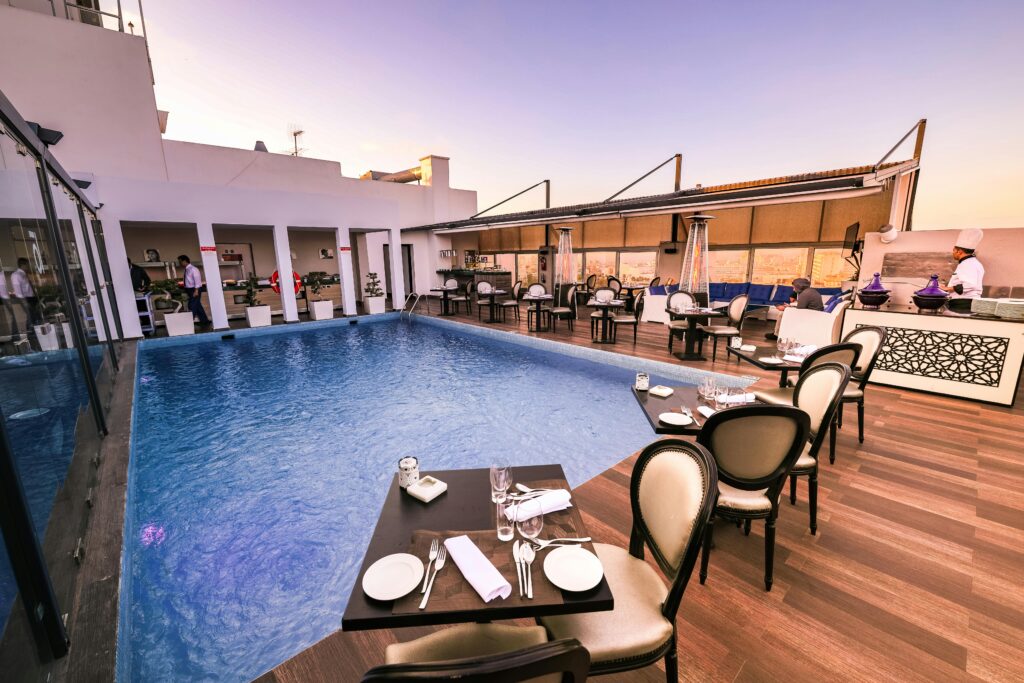
Property Protection in Coastal Florida
Operating a resort restaurant on Florida’s coastline brings undeniable advantages, breathtaking views, prime tourist traffic, and the prestige of a sought-after destination. But with that location also comes significant property risk that inland businesses rarely have to consider. Hurricanes, tropical storms, flooding, storm surge, and even long-term humidity-related damage can all lead to costly repairs and extended closures.
For this reason, commercial property insurance is non-negotiable. However, it’s not enough to simply have a policy in place, coverage must be written with precision. Unfortunately, many restaurant owners only discover after a disaster that their insurance excluded flood damage, or that their business interruption coverage was too limited to carry payroll during a prolonged shutdown. These gaps can mean the difference between a quick reopening and permanent closure.
When reviewing property protection for a coastal resort restaurant, special attention should be paid to:
- Hurricane deductibles – These are often separate and significantly higher than standard property deductibles. Understanding exactly how much you would be responsible for after a storm is critical to financial planning.
- Flood insurance – Most commercial property policies exclude flood damage, even though flooding is one of the most common consequences of hurricanes in Florida. A separate flood policy is often necessary for true coastal protection.
- Equipment breakdown coverage – Resort restaurants rely heavily on refrigeration, ovens, freezers, and other specialized kitchen equipment. If a power surge or mechanical failure takes them out of service, equipment breakdown coverage ensures repair or replacement costs don’t fall entirely on you.
- Business interruption insurance – Perhaps the most overlooked but vital piece, this coverage replaces lost income and helps cover operating expenses, like payroll, rent, and utilities, while your restaurant is closed due to a covered disaster.
For resort restaurants in Florida, these details are not optional extras. They are essential safeguards against the very real possibility of weather-related disruptions. With carefully structured property protection, you gain the confidence that when the next storm comes, your business has the financial support to recover quickly and continue serving guests.
Employment Practices Liability (EPLI)
Seasonal staffing, while essential for meeting peak demand, also increases exposure to employment-related claims. Even when you follow proper hiring, training, and termination procedures, disputes can arise. Employees, especially temporary or part-time seasonal staff, may allege unfair treatment, discrimination, harassment, wrongful termination, or wage and hour violations. In the fast-paced, high-pressure environment of a resort restaurant, these claims can escalate quickly.
Employment Practices Liability Insurance (EPLI) provides crucial protection against these risks. EPLI covers the costs of legal defense, settlements, and judgments related to employment disputes, helping your business manage claims without jeopardizing financial stability.
For resort restaurants that rely heavily on seasonal or transient workers, including EPLI in your insurance package is strongly recommended. This coverage not only protects your finances but also ensures your management team can operate confidently, knowing that employment-related risks are addressed proactively.
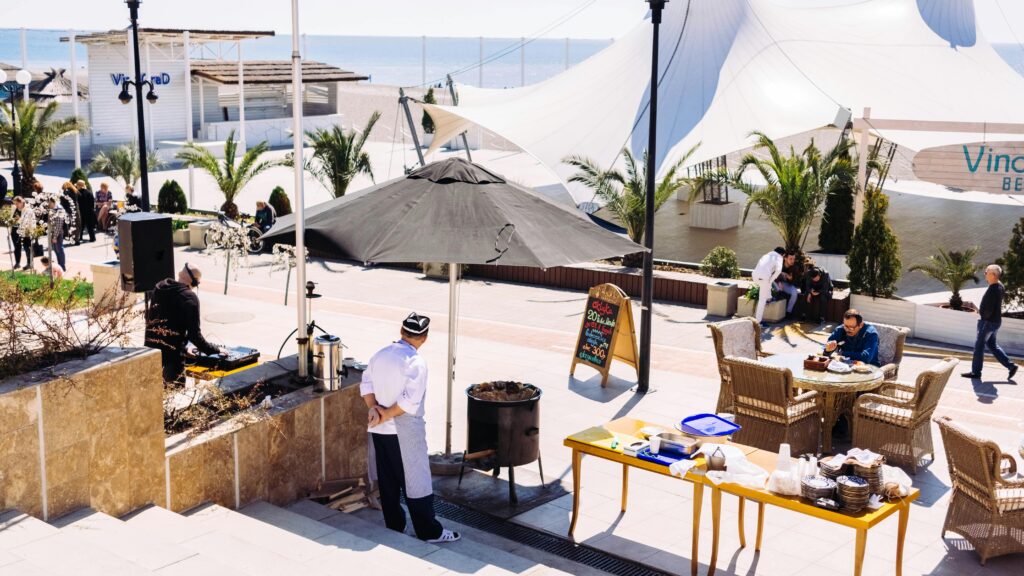
Business Interruption Coverage: The Lifeline for Resort Restaurants
Consider this scenario: a hurricane sweeps through your coastal resort, causing extensive damage that forces your restaurant to close for weeks, or even months, right in the middle of peak season. In addition to lost food inventory and damaged equipment, your restaurant faces a critical revenue gap. For resort operators, missing out on these high-traffic months can threaten financial stability for the entire year.
This is exactly where business interruption insurance becomes invaluable. Unlike standard property coverage, which only addresses the cost of repairing or replacing damaged assets, business interruption insurance helps keep your operations afloat during a closure. It can cover:
- Lost income resulting from forced closure
- Payroll so your staff can continue to be paid
- Rent and utilities for leased spaces
- Other operating expenses necessary to maintain your business during downtime
For resort restaurants, business interruption coverage is particularly critical because revenue is closely tied to seasonal tourism cycles. A few weeks of lost service during the busy season could outweigh the profits of several slower months combined. With this coverage in place, you can weather natural disasters, equipment failures, or other unexpected closures without jeopardizing your long-term viability.
How We Help You Manage Costs Without Cutting Coverage
We know cost is always a concern for restaurant owners. Insurance can feel like one of the biggest overhead expenses. But the answer isn’t to cut coverage, it’s to structure it smartly.
Here are a few ways we help our resort restaurant clients manage costs:
- Bundling policies under a Business Owners Policy (BOP) to save money on premiums.
- Pay-as-you-go workers’ comp that matches premiums to actual payroll.
- Risk management training for seasonal staff to reduce accidents and claims.
- Annual policy reviews to ensure coverage limits match your evolving risks.
Our goal is to protect your business while helping you maximize value from every premium dollar spent.
The Importance of Working With a Specialized Agency
Not all insurance agents understand the complexities of Florida’s hospitality industry. At Commercialize Insurance Services (CIS), restaurant insurance is our specialty. We know the risks, the regulations, and the seasonal fluctuations that define resort dining operations.
When you work with us, you’re not just buying a policy, you’re partnering with experts who:
- Anticipate seasonal staffing changes.
- Navigate Florida’s hurricane and flood risks.
- Understand the liability challenges of serving a tourist-heavy market.
- Advocate for you during claims to ensure you receive fair payouts.
Staying Compliant With Florida Regulations
Florida’s insurance and employment regulations can be complex, and staying compliant is critical for resort restaurants. Failing to meet state requirements can lead to fines, penalties, and even legal exposure, on top of operational disruptions. Some key compliance considerations include:
- Workers’ compensation requirements – Florida law mandates coverage for any business with four or more employees. This includes both full-time and seasonal staff, making it essential for resort restaurants with fluctuating workforce levels to maintain proper documentation and coverage.
- Liquor liability laws – Alcohol regulations vary by county, and different rules may apply depending on whether you’re serving at your main restaurant, a poolside bar, or a private event. Noncompliance can result in fines, revoked licenses, or increased liability in the event of an incident.
- Property insurance and flood zones – Insurance requirements and coverage limits can change depending on your location and whether your property is in a designated flood zone. Understanding these nuances ensures that your property and business interruption coverage provide true protection.
At Commercialize Insurance Services (CIS), we help our clients stay compliant by monitoring updates from state regulators and proactively adjusting policies. Compliance isn’t just about avoiding penalties, it also builds trust and credibility with employees, guests, and business partners.
For additional authoritative resources on Florida restaurant and insurance compliance, we recommend reviewing:
- U.S. Small Business Administration (SBA) – Guidance for small businesses on insurance, compliance, and risk management.
- National Restaurant Association (NRA) – Industry-specific best practices and regulatory updates.
- Insurance Information Institute (III) – Expert insights on insurance requirements, coverage types, and risk mitigation.
Staying informed and compliant ensures that your resort restaurant not only meets legal obligations but also operates with confidence and credibility year-round.
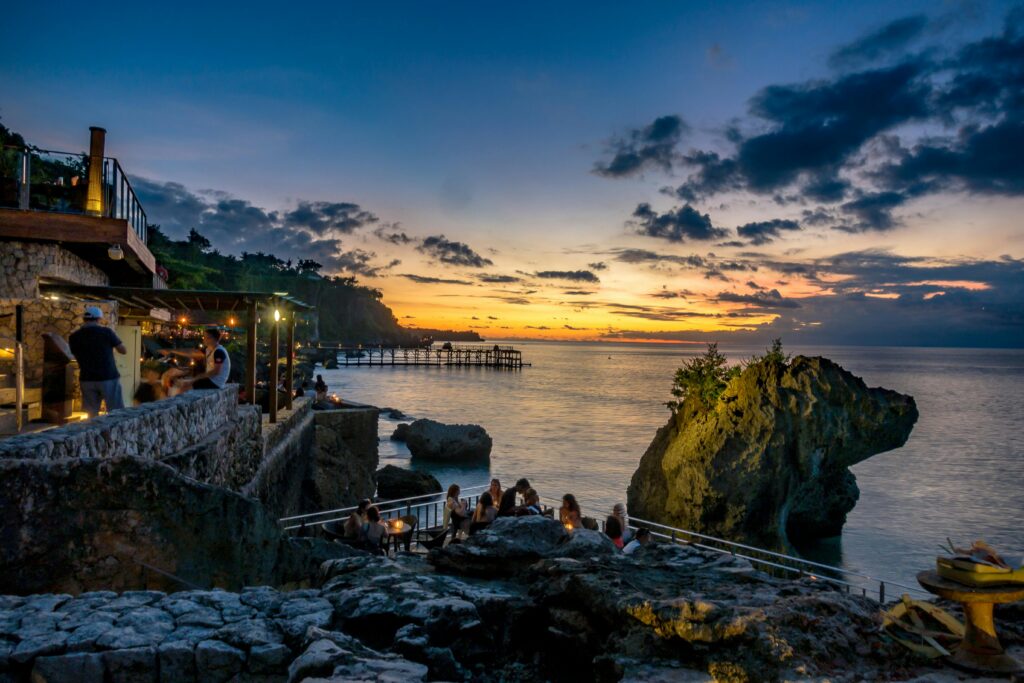
Why Seasonal Restaurants Trust Commercialize Insurance Services (CIS)
Our resort restaurant clients often tell us that working with Commercialize Insurance Services (CIS) has saved them time, money, and stress. We bring clarity to the insurance process by translating complex policies into plain language and tailoring coverage to the unique rhythms of Florida’s resort industry.
Whether you’re running a beachfront fine dining venue, a casual poolside café, or a resort bar hosting live music, we design protection strategies that grow with you.
If you manage a resort restaurant in Florida, your insurance strategy can’t afford to be generic. Seasonal staff, hurricane exposure, and liability risks require a partner who understands your
Contact Commercialize Insurance Services (CIS) today and brew with confidence tomorrow.
- Phone: (321) 830 – 0006
- Email: info@usa-cis.com
- Web: https://usa-cis.com
- Facebook: Commercialize Insurance Services
- Instagram: @insurance.cis

